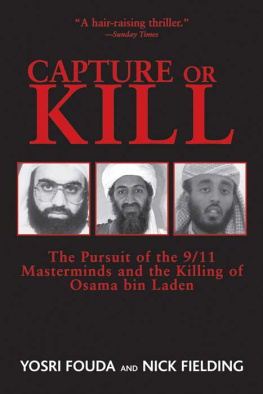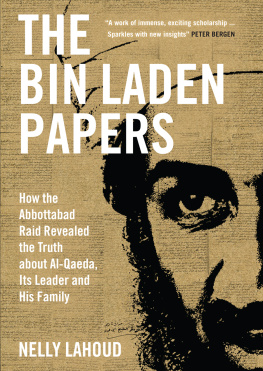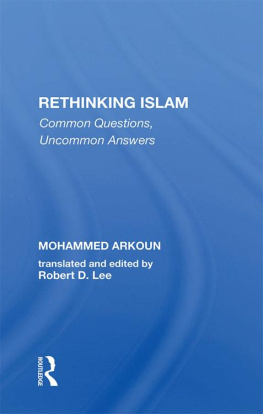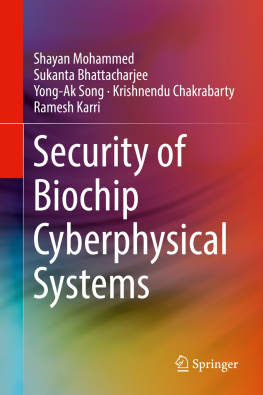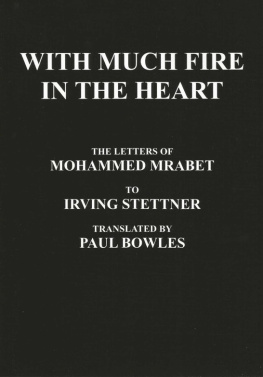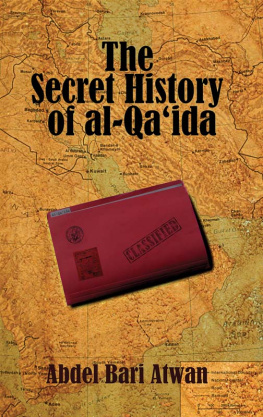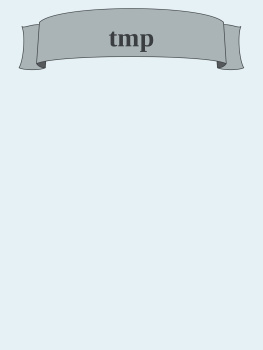Copyright 2003, 2011 by Yosri Fouda and Nick Fielding
All Rights Reserved. No part of this book may be reproduced in any manner without the express written consent of the publisher, except in the case of brief excerpts in critical reviews or articles. All inquiries should be addressed to Arcade Publishing, 307 West 36th Street, 11th Floor, New York, NY 10018.
Arcade Publishing books may be purchased in bulk at special discounts for sales promotion, corporate gifts, fund-raising, or educational purposes. Special editions can also be created to specifications. For details, contact the Special Sales Department, Arcade Publishing, 307 West 36th Street, 11th Floor, New York, NY 10018 or .
Arcade Publishing is a registered trademark of Skyhorse Publishing, Inc., a Delaware corporation.
Visit our website at www.arcadepub.com.
10 9 8 7 6 5 4 3 2 1
Library of Congress Cataloging-in-Publication Data is available on file.
ISBN: 978-1-61145-400-0
Printed in the United States of America
ACKNOWLEDGEMENTS
We have had help from many people in writing this book, some of whom will have to remain nameless, but many others whom we are only too pleased to name and thank. We have also been both supported and encouraged by our respective employers Al-Jazeera Channel for Yosri Fouda and The Sunday Times for Nick Fielding in embarking upon this project.
Yosri Fouda would particularly like to thank Al-Jazeera chairman Sheikh Hamad Bin Thamer Al Thani for his great help and support and give special thanks to vice chairman Mahmoud al-Sahlawi, director-general Mohammed Jasim al-Ali and head of marketing Ali Kamal, all of whom backed him while working on this story.
Nick Fielding would like to thank Sunday Times editor John Witherow for his support in writing this book. He is grateful for the encouragement offered by many colleagues and would particularly like to thank managing editor (news) Mark Skipworth for giving him the opportunity to report from Pakistan and Afghanistan in 2002. Special thanks also to Charles Hymas, Stephen Grey, Sean Ryan and Bob Tyrer.
The following people have all been of help in one way or another in the writing of the book and we offer them heartfelt thanks:
Nader el-Abd, Hussein Abdul-Ghani, Dr Zaki Badawi, Muhammad Belfas, Rudiger Bendlin, Rudi Dekkers, Richard Gammons, Hasnain Ghulam, MJ. Gohel, Dr Rohan Gunaratna, Rawan Hijazi, Karim Jammal, Abed al-Jubah, Rania Khoury, Nadeem Khuram, Arne Kruithof, Professor Dittmar Machule, Shah Mahmoud, Dr Rehman Malik, Alan Marmion, Jehangir Masud, Hafez Mirazi, Kassab al-Otaibi, Nadia Rahman, Sadaf Razvi, Afzaul Shah, Muftah al-Suwaidan, Lili al-Taie, Ahmed Zaidan and Eric Zandvliet.
Not to mention Gary West at Metro Broadcast, Yosris pizza delivery man, the crew of the MS Caprice, Nick Fieldings fixer Habib Ahmad in Kabul and many others.
Ailsa Bathgate at Mainstream has been a model of diplomacy and tact during the frantic editing process and thanks also to her colleagues Bill Campbell, Graeme Blaikie, Fiona Brownlee and Tina Hudson. Thanks also to our agent, Robert Kirby at PFD.
Not least we would like to thank our families and friends for putting up with us during the writing of this book. We hope, like us, they think it was worth it.
All omissions, errors, inconsistencies and other consequences of human frailties, we are happy to accept as the small change of this endeavour.
Yosri Fouda and
Nick Fielding
March 2003
CONTENTS
A 16-page section ofphotographs falls between pages 104 and 105.
GLOSSARY
Al-Anfal: the spoils, Surah 8 of the Holy Koran
Ansar: supporters of the Prophet Mohammed
At-Taubah: Repentance, Surah 9 of the Holy Koran
Burqa: all-enveloping womens cloak
Dhabaha: to slaughter
Dar Harb: house of war
Dar Silm: house of peace
Djinm a being or spirit in Muslim belief who could assume human or animal form and influence man by supernatural powers
Fajr: early morning
Fatwa: religious decree
Ghazwah: raid, battle
Hadith: the body of tradition about Mohammed and his followers
Hajj: pilgrimage
Hawala: informal banking system
Hijrah: migration
Imam: religious leader
Inshallah: God willing
Ifiar: literally, breakfast, but in Iran and Afghanistan it also means the evening meal at the end of Ramadan
Jihad: holy war
Kdaba: the House of Allah which Muslims believe was built by the Prophet Abraham in Mecca
Kabair: major sins
Kunyah: Arabic pseudonyms, usually begins with Abu or Tbn
Laqab: title, family name
Madrassas: religious schools
Majlis al-Shura: consultative council
Muhajiroum migrants (refers usually to early Muslims who followed the Prophet Mohammed from Mecca to Medina)
Mujahideem holy warriors
Namaz: prayers
Pukhtunwali: & strict social code of the Pukhtuns in the tribal areas in Pakistan/Afghanistan
Sahour: pre-dawn meal during the fasting month of Ramadan
Salaam: greetings
Shuhadaa: martyrs
Shalwar kameez. traditional Pakistani two-piece costume
Shaytaan: Satan
Takbeer: the chanting of the words Allah-u-Akbar (God is Great)
Ulema: religious scholars
Ummah: nation
Zakat: religious donations
INTRODUCTION
The attacks on the World Trade Center and the Pentagon on 11 September 2001 changed the world. Not since Pearl Harbor in 1941 had America suffered such a devastating attack on its own soil. Islamic groups had previously mounted attacks on American forces around the world, but this was something different.
For months after the attack, as American and Allied forces geared up for war in Afghanistan, intelligence and security organisations searched desperately for proof that Osama bin Ladens al-Qaeda organisation had planned and carried out the attacks. Each statement by bin Laden emerging from his fastness in Afghanistan was analysed to see if it provided any kind of irrefutable proof. The British government issued a document that in everything but name was the case for the prosecution. Even that lacked proof.
In the absence of a full claim of responsibility, arguments raged. Conspiracy theorists said the attacks had been organised by the American government itself to justify its attacks on Islam. Others blamed the Israelis. Sceptical governments demanded proof before considering taking action to freeze assets or arrest suspects.
Not until Yosri Fouda returned from his meeting with Khalid Shaikh Mohammed and Ramzi Binalshibh in Pakistans southern port city of Karachi and the story broke in September 2002 did the world find out the identity of the real masterminds who had planned and carried out the most devastating act of terror the world had ever seen.
For 48 hours, Fouda lived with them, ate with them, prayed with them. Khalid the chairman of al-Qaedas military committee and his faithful coordinator, Ramzi Binalshibh, were proud of their finest hour. Not only would they do it again, but also they called for a thousand similar operations.

